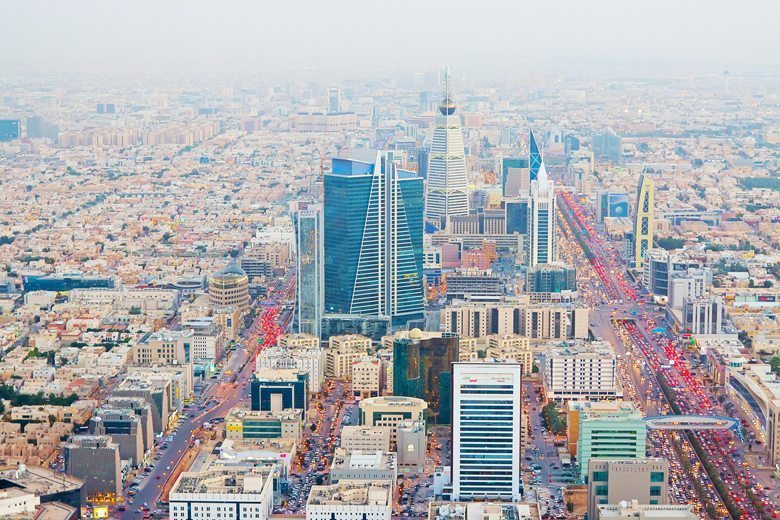

The National Transformation Plan will affect every aspect of Saudi Arabias society
On Monday 25 April, Riyadh will unveil the agenda of its much-anticipated National Transformation Plan (NTP), a wide-ranging privatisation and economic reform programme aimed at repositioning the giant Saudi Arabian economy away from its dependence on oil exports and government spending.
The crucial details of the NTP will not be revealed for a further 45 days but, inside the kingdom, all eyes are on the 25th.
The plan, which has been developed by Economy & Planning Minister Adel bin Mohammed Faqih and the Council of Economic Development Affairs (CEDA), under the authority of Deputy Crown Prince Mohammed bin Salman al-Saud, will describe the privatisation of the Saudi economy and launch the biggest ever upheaval of the Saudi Arabia business environment.
The NTP will affect every business in the kingdom but it is likely also to touch nerves on sensitive issues relating to the relationship between the government and civil society in Saudi Arabia.
It will be a defining moment for Deputy Crown Prince Mohammed, who has emerged over the past year, as one of the most important and powerful political figures in the kingdom.
As well as being second in line to the throne and having responsibility for shaping the direction of the kingdoms economic development, the youngest son of King Salman bin Abdulaziz al-Saud, who is informally referred to as MBS, is also Secretary General of the Royal Court and Saudi Arabias Minister of the Defence.
Delivering the vision
Riyadh has bought in many of the worlds leading consultants to advise of its reform plan.
According to a report this week by Source Global Research, Saudi Arabia has spent $1.25bn on fees for management consultants this year, with a significant portion focused on the development of the NTP, where US consultant McKinsey has had a leading role.
But despite this, Deputy Crown Prince Mohammeds biggest challenge will come in delivering the vision, rather than simply delivering the message.

Saudi Arabia
Saudi Arabia
The reform agenda is widely supported in the kingdom by those that say Saudi Arabia needs to modernise in order to create jobs and successfully compete for investment in the global economy.
But it is also likely to meet with strong resistance from some who are concerned about the potentially destabilising effect of radical reforms on Saudi society, as well as others concerned about a loss of power.
As well as raising political tensions, the reform programme will introduce new challenges for businesses in the kingdom.
Private companies and government agencies must prepare for a shift in the focus of business activity from government-led spending, to private-sector led initiatives. This move will change decision making, financing and control of hitherto state-owned assets.
Local companies, whether state-owned or privately owned, will need to embrace genuine organisational transformation to improve corporate governance and transparency.
Oil falls expose weaknesses
And Riyadh must overhaul its education system to inform and empower Saudis young and old to meet the challenges of a private-sector driven economic model.
Saudi Arabia has a chronic problem with high levels of unemployment among its youth population.
Young Saudis must be equipped with the skills to serve a diversified, industrial and services-led economy. Older heads meanwhile must learn to change their mindsets to embrace new ways of working.
If the government wants to use the private sector to finance public infrastructure and services through procurement models such as public private partnerships (PPP), ministries must give up control and change the way they place contracts. No more lowest price wins!
Instead, the value of proposals to deliver the governments capital projects will be judged by the value of the bid over the full lifecycle of the project. A fundamentally different way to tender schemes and assess proposals.
The fall in oil prices over the past 21 months has exposed the lack of sustainability in Saudi Arabias oil-centric, government-driven economic model, and Riyadh knows that it must respond.
The reforms being announced this week are likely to be painful in the short term and difficult to achieve.
But the alterative, to do nothing, would be far worse in the long run for Saudi Arabia and its 30 million residents.
You might also like...

Iraq signs deal to develop the Akkas gas field
25 April 2024

Emaar appoints beachfront project contractor
25 April 2024

Acwa Power signs $356m Barka extension
25 April 2024

AD Ports secures Angola port concession agreement
25 April 2024
A MEED Subscription...
Subscribe or upgrade your current MEED.com package to support your strategic planning with the MENA region’s best source of business information. Proceed to our online shop below to find out more about the features in each package.








